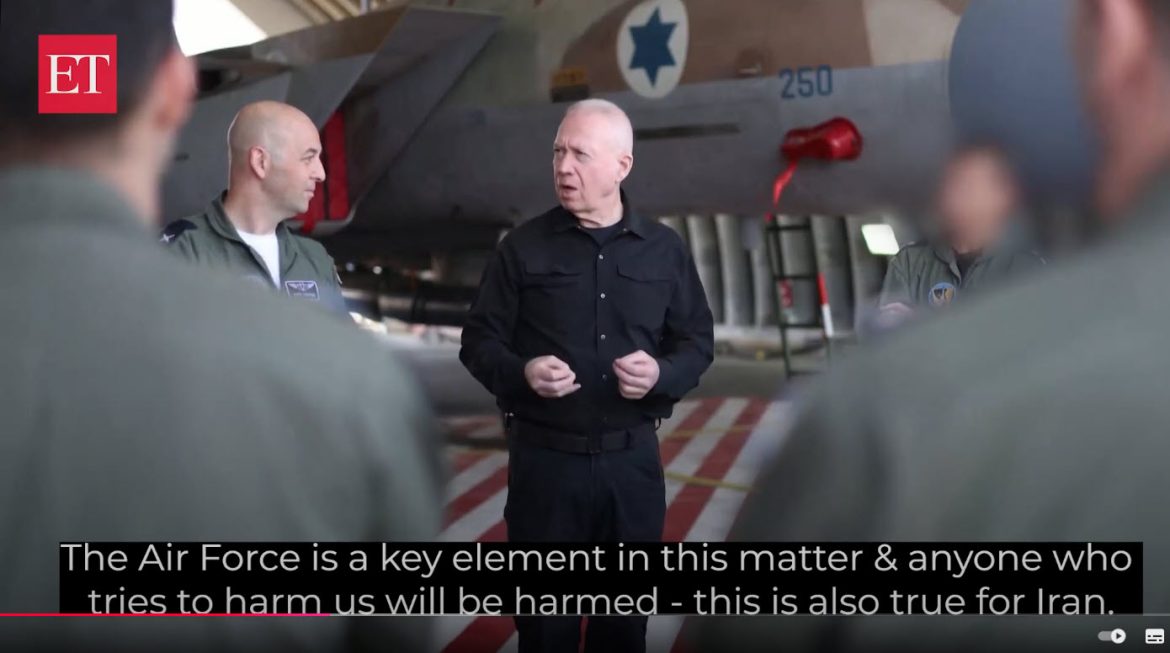Israeli Defense Minister Yoav Gallant has issued a stern warning to Iran, signaling Israel’s readiness to retaliate for Iran’s recent missile attack on October 1. In a video statement released during a visit to an Israeli air force base, Gallant declared that Israel’s preparations for an attack on Iran are nearing completion, suggesting that a significant military response is imminent. Gallant emphasized that the world will come to understand the extensive planning and readiness involved in Israel’s operations once the strike takes place.
A Response to Iran’s Missile Attack
Tensions between Israel and Iran have escalated dramatically following Iran’s massive missile attack on Israeli territory at the beginning of the month. The October 1 attack, which involved ballistic missiles targeting key sites in Israel, was seen as a provocative act, and Israeli leaders have vowed to retaliate decisively. Prime Minister Benjamin Netanyahu and Gallant have both underscored that Israel will not tolerate any threats to its sovereignty or security, with Gallant now suggesting that military action against Iran could happen soon.
“After we attack in Iran, they will understand both in Israel and in other places what your preparation process includes, and the arrangements and your readiness,” Gallant said, addressing Israeli air force personnel. The defense minister’s statement underscores Israel’s confidence in its military capabilities and its ability to deliver a crippling blow to Iran’s infrastructure in response to the missile attacks.
Extensive Preparations for a Major Strike
Gallant’s remarks point to Israel’s meticulous preparations for a potential strike on Iran. Israel’s defense forces have been conducting extensive training exercises, including simulations of missile strikes and air defense scenarios, to ensure they are ready for any potential conflict with Iran. The Israeli air force has been a central component of this strategy, with military leaders closely coordinating operations aimed at neutralizing Iranian military targets and missile launch sites.
The defense minister also stressed that Israel’s response would serve as a clear message to Iran and other hostile actors in the region. “Those who dream of defeating Israel will pay a heavy price,” Gallant warned, further escalating the war of words between the two nations. His statement reflects Israel’s broader strategy of deterrence, aimed at dissuading Iran and its regional allies from launching future attacks.
Regional and Global Implications
The possibility of an Israeli strike on Iran is raising concerns among international observers, who fear the move could ignite a broader conflict in the already volatile Middle East. Iran, backed by its network of proxy groups such as Hezbollah in Lebanon and militias in Syria and Iraq, has long been a central adversary of Israel, and any military confrontation could have far-reaching consequences across the region.
Israel has repeatedly expressed concern over Iran’s nuclear ambitions and its ballistic missile program, seeing them as direct threats to its national security. Over the years, Israel has conducted covert operations, including airstrikes and sabotage missions, targeting Iranian military installations and nuclear facilities. However, the scale of Gallant’s remarks suggests that the planned strike could be significantly larger and more impactful than previous operations.
International powers, including the United States and European nations, are closely monitoring the situation, urging both sides to exercise caution. The potential for Israeli-Iranian conflict could also draw in other regional players, further destabilizing a region already grappling with multiple crises.
Political Reactions and Public Sentiment
Within Israel, Gallant’s statements have stirred both support and anxiety. Many Israelis back the government’s firm stance against Iran, recognizing the existential threat posed by Tehran’s military capabilities and rhetoric. However, there are also concerns about the consequences of a major military conflict, including potential retaliation from Iran and its proxies, which could lead to missile strikes on Israeli cities and military bases.
Iran, for its part, has vowed to defend itself against any aggression. Iranian officials have responded to Gallant’s warnings with defiance, stating that Iran’s missile capabilities are prepared to counter any Israeli attack. Tehran has also sought to rally support from its regional allies, emphasizing the importance of resisting what it describes as Israeli “aggression.”
As tensions continue to escalate, the world waits to see if Israel will follow through on its warnings and what the consequences will be for the broader Middle East.



